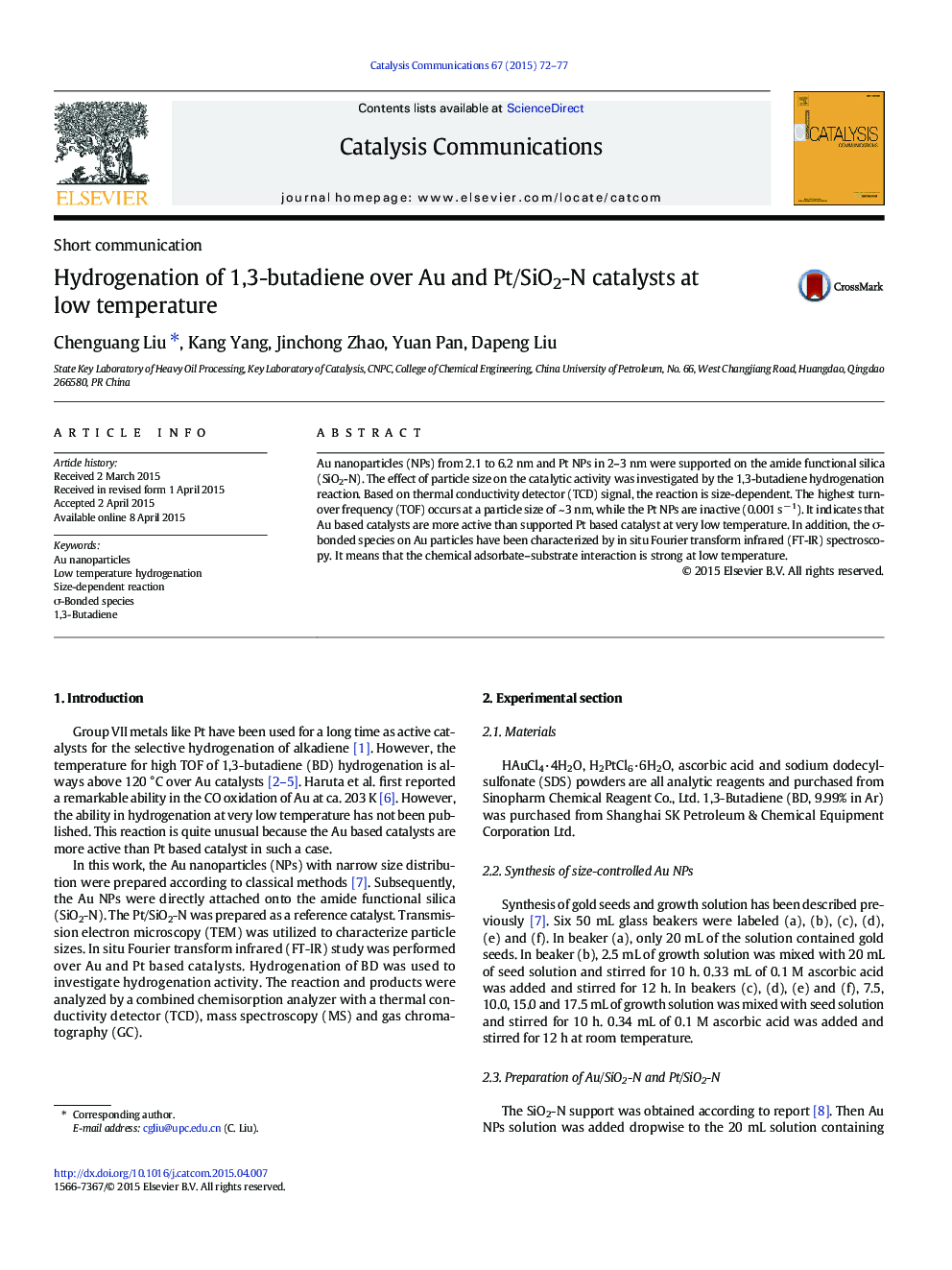| کد مقاله | کد نشریه | سال انتشار | مقاله انگلیسی | نسخه تمام متن |
|---|---|---|---|---|
| 50210 | 46784 | 2015 | 6 صفحه PDF | دانلود رایگان |

• Au particles can catalyze low temperature selective hydrogenation reaction.
• The maximum activity is originated from suitable size of Au NPs in 2–3 nm.
• The selectivity to butene is 100% over Au based catalysts.
• Au/SiO2-N catalyst is more active than Pt/SiO2-N catalyst at low temperature.
• The σ-bonded species are observed by FT-IR spectroscopy at ca. 210 K.
Au nanoparticles (NPs) from 2.1 to 6.2 nm and Pt NPs in 2–3 nm were supported on the amide functional silica (SiO2-N). The effect of particle size on the catalytic activity was investigated by the 1,3-butadiene hydrogenation reaction. Based on thermal conductivity detector (TCD) signal, the reaction is size-dependent. The highest turnover frequency (TOF) occurs at a particle size of ~ 3 nm, while the Pt NPs are inactive (0.001 s− 1). It indicates that Au based catalysts are more active than supported Pt based catalyst at very low temperature. In addition, the σ-bonded species on Au particles have been characterized by in situ Fourier transform infrared (FT-IR) spectroscopy. It means that the chemical adsorbate–substrate interaction is strong at low temperature.
Figure optionsDownload as PowerPoint slide
Journal: Catalysis Communications - Volume 67, 5 July 2015, Pages 72–77